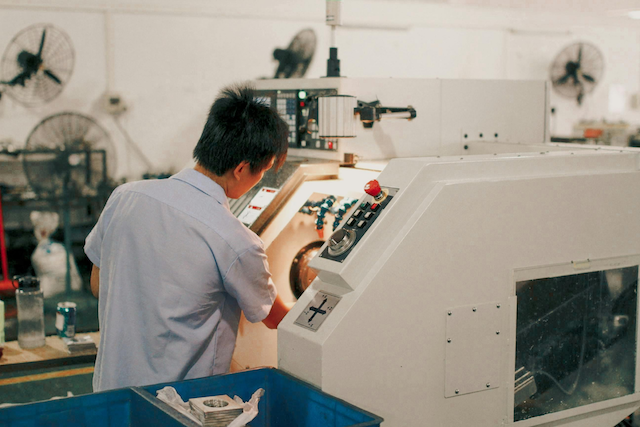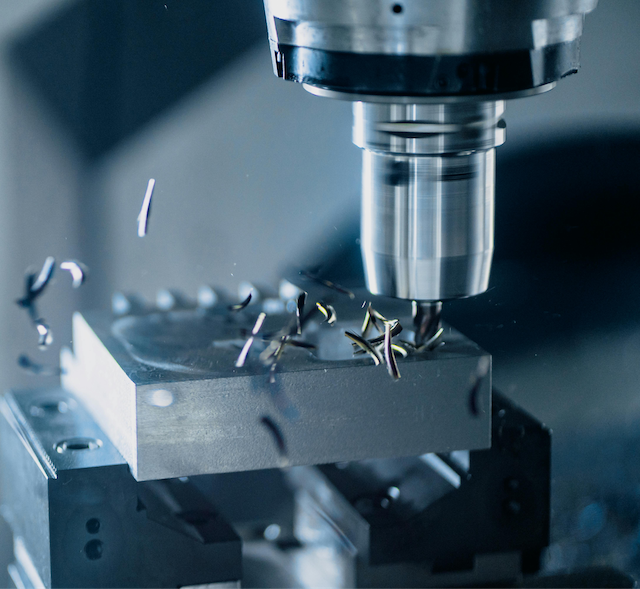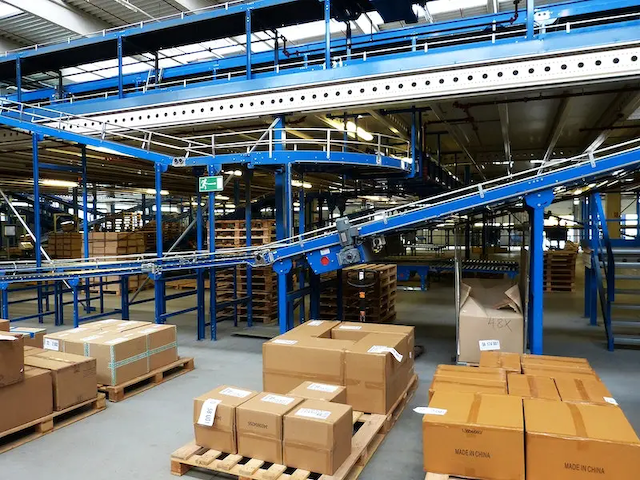The precision and scalability offered by CNC machines have revolutionized production across various sectors, including automotive, aerospace, and electronics. In tandem, factory audits play an indispensable role, acting as the vital checks that ensure these intricate systems operate within the highest standards of quality and efficiency.
What Are Factory Audits in CNC Manufacturing?
Factory audits are systematic examinations conducted to inspect the quality and efficiency of manufacturing processes. In the context of CNC manufacturing, these audits are categorized into:
- Compliance Audit: Ensures adherence to legal and regulatory standards.
- Process Audit: Assesses the efficiency and effectiveness of operational procedures.
- Quality System Audit: Examines the actions and criteria to meet quality management standards.
- Supplier Audit: Verifies that suppliers meet the required quality and supply chain specifications.
Choosing QCADVISOR for your factory audit is essential for success in CNC manufacturing as it ensures high standards of quality control and operational efficiency, helping you identify potential issues before they affect production and maintain a competitive edge in the market
Why Are Factory Audits Crucial for CNC Manufacturing Success?
The benefits of conducting regular factory audits in CNC manufacturing are profound:
- Ensuring Product Quality: Audits maintain high-quality production standards, crucial for client satisfaction and repeat business.
- Reducing Production Errors: Systematic checks help identify and rectify process discrepancies that could lead to defects.
- Ensuring Compliance with Regulations: Regular audits help in adhering to industry-specific regulations and standards, preventing legal issues.
- Enhancing Supply Chain Transparency: Audits provide insights into the supply chain, ensuring all components meet the necessary criteria for quality and reliability.
What Are the Key Objectives of a CNC Factory Audit?
The primary goals of a CNC factory audit include:
- Evaluating Machinery Maintenance: Ensuring that all CNC machines are in optimal working condition.
- Inspecting Production Processes: To verify that manufacturing procedures efficiently meet product specifications.
- Verifying Operator Competency: Assessing the skill and knowledge of operators to handle complex machinery.
- Checking Material Handling and Inventory Control: Ensuring materials are properly managed and accounted for.
- Reviewing Documentation and Record-Keeping Practices: Confirming that all documentation is accurate and up-to-date.
How Do Factory Audits Help Identify Risks in CNC Manufacturing?
Audits are crucial in identifying potential risks that could impede production or lead to quality issues. Common risks include:
- Machine Malfunctions: Detecting early signs of equipment wear and tear that could lead to operational failures.
- Supply Chain Delays: Identifying vulnerabilities in the supply chain that could cause production delays.
- Regulatory Violations: Spotting non-compliance with industry regulations that could result in fines or shutdowns.
What Are the Different Types of Factory Audits in CNC Manufacturing?

Factory audits in CNC manufacturing can be internal, external, or conducted by third parties, each serving specific purposes:
- Internal Audits: Focus on continual improvement and are conducted by the organization's own audit team.
- External Audits: Performed by independent auditors for an unbiased review of the systems and processes.
- Third-Party Supplier Audits: Ensure that external suppliers meet the organization's quality and production standards.
- Pre-shipment Audits: Involve checking products before dispatch to ensure they meet the quality standards.
Internal Audits in CNC Manufacturing
Internal audits are vital as they provide an ongoing review of operational processes and help in the early identification of potential issues that could impact quality and efficiency. Key areas of focus include system functionality, operator performance, and compliance with internal standards.
External Audits in CNC Manufacturing
External audits provide a fresh perspective, offering insights from independent auditors that help enhance transparency and trust with stakeholders by verifying that the business operations align with global standards and best practices.
Third-Party Supplier Audits
Auditing suppliers ensures that the components supplied for CNC operations meet the required quality standards, which is crucial for maintaining the integrity of the final product.
What Are the Key Components of a CNC Factory Audit?
Essential components of a factory audit in CNC manufacturing include:
- Document Review: Examining all relevant documents and records for accuracy and completeness.
- Machine Inspection: Ensuring all CNC machinery is in top condition and operates at optimal efficiency.
- Operator Interviews: Gathering insights from operators about the daily challenges and efficiencies of their operations.
- Process Evaluation: Assessing the effectiveness of the manufacturing processes in place.
- Compliance Verification: Verifying that the manufacturing practices comply with the necessary industry standards and regulations.
How Do Factory Audits Improve Product Quality in CNC Manufacturing?

Regular audits ensure the machinery is well-maintained and that the manufacturing processes remain efficient and capable of producing high-quality products consistently. This not only meets but often exceeds customer expectations regarding product precision and reliability.
What Are the Main Advantages of Conducting CNC Factory Audits?
The strategic implementation of regular factory audits in CNC manufacturing leads to significant advantages:
- Reduces Operational Costs: By identifying inefficiencies that can be rectified to save costs.
- Minimizes Downtime: Through regular maintenance and prompt repair of machinery, reducing machine downtime.
- Ensures Customer Satisfaction: High-quality, reliable products build customer trust and satisfaction.
- Improves Production Efficiency: Streamlined processes and well-maintained equipment boost overall productivity.
- Strengthens Regulatory Compliance: Regular audits help in maintaining compliance with industry standards, avoiding legal issues.
What Are the Key Challenges in Conducting CNC Factory Audits?
While factory audits are beneficial, they come with their set of challenges:
- Cost of Audits: The financial investment in conducting thorough audits can be significant, especially for small to medium enterprises.
- Time Investment: Audits require substantial time to plan, execute, and follow up, which can disrupt regular operations.
- Managing Multi-Site Audits: Coordinating audits across multiple manufacturing sites can be complex and resource-intensive.
- Resistance from Employees or Suppliers: There can be apprehension or resistance from staff or suppliers towards audit processes, which can hinder the thoroughness of the audit.
How Can CNC Manufacturers Prepare for a Successful Factory Audit?
Preparation is key to ensuring that factory audits are successful and yield beneficial insights:
- Reviewing Documentation: Ensuring all documentation is thorough and up-to-date.
- Ensuring all Machinery is Up to Date and Properly Maintained: Regular maintenance of CNC machines is essential for smooth operations.
- Training Employees on Audit Procedures: Employees should be well-versed in what the audit involves and how they can contribute to its success.
- Conducting Internal Mock Audits: These can help prepare the team for the actual audit by identifying potential areas of concern that can be addressed beforehand.
What Are the Most Important Documents to Have Ready for a CNC Factory Audit?
Key documents that should be prepared and available during an audit include:
- Quality Control Records: These show the measures taken to maintain product quality.
- Machinist Certification Records: Ensure that every CNC machinist is qualified and well-trained.
- Maintenance Logs: Document regular maintenance and any repairs made to machinery.
- Compliance Reports: Prove adherence to regulations and standards.
How Should CNC Manufacturers Train Employees for an Audit?
Training should cover:
- Audit Procedure Overview: Employees should understand the audit process and what is expected of them.
- Corrective Action Plan Development: Training in developing effective corrective actions for identified issues.
- Documentation Management: Proper management and maintenance of necessary documentation.
- Communication During Audits: Effective communication skills are crucial during audits for accurate and efficient information exchange.
How Can Factory Audits Improve Supply Chain Management in CNC Manufacturing?

Factory audits play a crucial role in supply chain management by ensuring that every component and material meets the required standards, which is essential for maintaining product quality and reliability. Audits can also help identify potential supply chain issues that could lead to delays or quality concerns, allowing for timely interventions.
What Role Do Factory Audits Play in CNC Manufacturing Compliance?
Factory audits ensure that manufacturing processes comply with relevant industry standards and regulations, such as ISO certifications or environmental standards. Compliance helps avoid legal issues and enhances brand reputation.
How Do Factory Audits Ensure CNC Machine Maintenance?
Regular audits help ensure that CNC machines are not only operational but also optimized for performance, which reduces the likelihood of breakdowns and the associated repair costs.
What Are Common Mistakes CNC Manufacturers Make During Audits?
Common mistakes during factory audits include:
- Failing to Document Corrective Actions: It's crucial to keep detailed records of what changes are made post-audit.
- Neglecting to Audit Suppliers: Suppliers should also meet the manufacturing standards as poor materials can affect product quality.
- Inconsistent Record-Keeping: Proper documentation is essential for effective audits.
- Not Acting on Audit Findings: It's important to implement changes based on audit results to improve processes.
Step-by-Step Guide to Conducting a CNC Factory Audit
A systematic approach to conducting a factory audit includes:
- Pre-audit Preparation: Ensuring all documentation and systems are in order before the audit.
- On-site Inspection: A thorough examination of the manufacturing facility and processes.
- Interviews with Staff: Gaining insights from employees about potential issues and improvements.
- Data Collection and Documentation Review: Gathering all relevant data and reviewing documentation for completeness and accuracy.
- Post-audit Reporting: Compiling findings and recommendations into a comprehensive report.
- Implementing Corrective Actions: Making necessary changes to improve processes and address identified issues.
How Often Should CNC Manufacturers Conduct Factory Audits?
The frequency of factory audits can vary significantly depending on several factors such as the size of the facility, the complexity of the manufacturing processes, and the history of compliance issues. However, best practices suggest:
- Regular Scheduled Audits: Conducting audits at least annually to ensure ongoing compliance and quality assurance.
- Unscheduled Audits: Random audits can help catch issues that might not be visible during scheduled audits.
- Event-Driven Audits: In case of major equipment upgrades, process changes, or significant non-compliance events, immediate audits may be necessary to assess new risks.
What Are the Main Tools Used in CNC Factory Audits?

Technology plays a crucial role in modern factory audits. Tools and technologies that enhance the efficiency and effectiveness of audits include:
- Digital Checklists: These can help streamline the audit process and ensure that no essential checks are overlooked.
- IoT Sensors: For machine monitoring, these sensors provide real-time data on machine performance, helping identify potential issues before they cause downtime.
- Automated Audit Software: Software solutions can help manage the audit process from planning through to reporting, ensuring a thorough and consistent approach.
- Quality Management Systems (QMS): These systems help maintain standards throughout the production process, facilitating continuous improvement and compliance.
What Are the Key Performance Indicators (KPIs) Monitored in CNC Factory Audits?
Effective factory audits focus on several key performance indicators that reflect the health and efficiency of the manufacturing process:
- Defect Rates: Measures the quantity of defects in the manufactured items, aiming for reduction over time.
- Machine Uptime: Tracks the operational availability of CNC machines, with higher uptime indicating better maintenance and machine management.
- Operator Efficiency: Assesses how effectively operators use the CNC machines, including their speed and precision.
- Waste Reduction: Focuses on minimizing waste material, which improves efficiency and reduces costs.
- On-Time Delivery Rate: Important for customer satisfaction, this KPI measures whether finished products are ready for delivery as scheduled.
How Do Factory Audits Help CNC Manufacturers Gain a Competitive Edge?
A robust audit process not only ensures compliance and quality but also builds a manufacturer’s reputation for reliability and excellence, thus:
- Enhancing Customer Trust: Consistent quality and compliance attract and retain customers.
- Improving Operational Efficiency: Regular audits help streamline operations, reduce waste, and minimize downtime, leading to cost savings.
- Facilitating Continuous Improvement: Audit provides feedback that can be used to improve every aspect of operations, keeping the company at the forefront of technological and process innovations.
What Are the Consequences of Failing a CNC Factory Audit?
Failing a factory audit can have several negative implications:
- Loss of Business Contracts: Poor audit results can lead to a loss of customer trust and subsequently, contracts.
- Financial Penalties: Non-compliance can result in fines and legal fees.
- Production Delays: Addressing the issues identified in an audit can cause significant delays in production.
- Reputational Damage: Negative audit findings can harm a company's reputation, affecting its long-term success and market position.
What Are the Best Practices for CNC Factory Audits?
To maximize the benefits of factory audits, CNC manufacturers should adhere to several best practices:
- Regular Audits: Maintaining a schedule of regular audits helps keep standards high and performance consistent.
- Involving Cross-Functional Teams: Engaging different departments can provide more comprehensive insights during audits.
- Continuous Improvement Approach: Using audit findings to continually improve processes ensures the company evolves and remains competitive.
- Clear Communication of Audit Results: Transparency about audit findings and corrective actions fosters trust and accountability within the organization.
Conclusion
Factory audits are not just a regulatory requirement; they are a cornerstone of operational excellence. Regular and thorough audits ensure that CNC manufacturers can meet the stringent quality standards demanded by modern markets, maintain operational efficiency, and avoid the costs associated with non-compliance. By adopting a proactive approach to factory audits, CNC manufacturers can safeguard their reputation, optimize their operational processes, and secure a competitive advantage in the marketplace. Through this vigilant practice, they ensure long-term success and reliability in the ever-evolving landscape of industrial manufacturing.
Sponsored materials
Partager avec mes amis :



